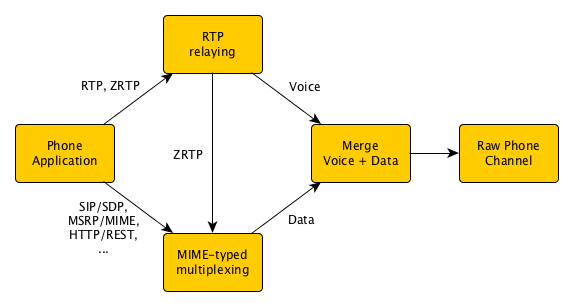Introducing Codec Freedom

Classical communications systems tend to have hard-wired codecs, which means that their use sacrifices a choice to change to a modern codec. This project resolves that problem for both the mobile and landline telephone systems.
Virtually all telephony passes over digital transport channels, that were locked to the best codec of ages ago. Changing the codec can yield great benefits:
- Modern codecs provide much better sound quality
- Modern codecs are more compact, and can get more out of a fixed bandwidth
- Codecs may transport data alongside voice -- usable for chat, URL exchange, documents, ...
- Codec negotiation is an opportunity to initiate encryption.
This project analyses the common transports for telephony, and defines a way to wiggle in some data. Sometimes we can bluntly start a data connection instead of a voice call, but in other places we need to steal a few bits at a time, and come to a situation where we can radically changeover to a data channel.
The promises of this project are enticing: End points will be able to switch codecs on mobile phones as well as on landlines, without involvement of the intermediate infrastructure. In other words, if you and your friend understand how to practice Codec Freedom, you're set to go.
There are many pieces of software where a small modification is needed to make this happen. Please visit the Partial Projects page for inspiration. This project works on the specifications, and ultimately aims for a World-wide Internet standard, a so-called RFC. The individual projects however, are perfect for volunteer projects or, in the course of a course assignment, as student projects.